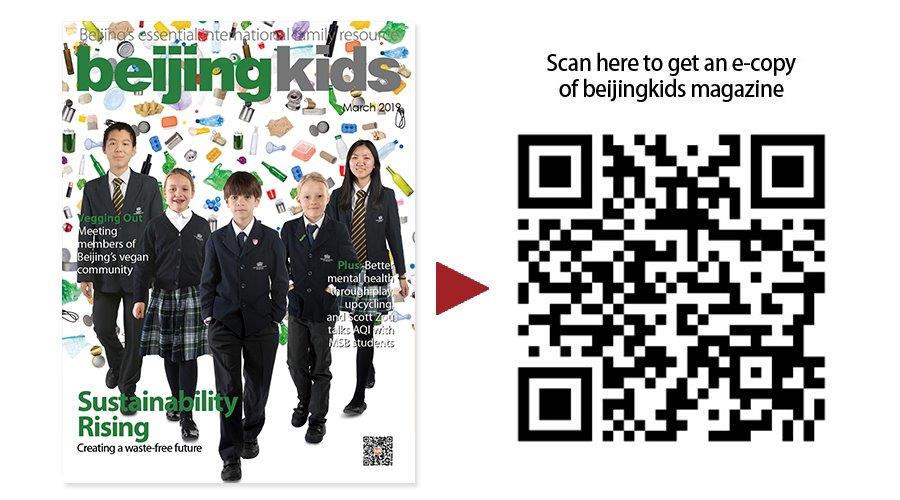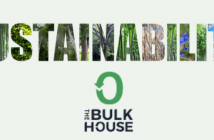One of the major challenges we face in our world today is sustainability. The current ways in which we live have a detrimental impact on future generations and it’s time to step up and face this issue head-on.
But what does sustainable living even mean?
Although there may be different interpretations of these words, it essentially means living in a way that meets our basic needs for food, water, shelter, and resources without compromising or harming the environment or people around us.
Living in Beijing poses its own challenges for living sustainably. One of the biggest ones is the convenience and ease of having everything delivered to your doorstep, which makes things a little harder from a sustainability point of view. So how do we get around these issues and find a way to reduce our impact on the environment?
To get some ideas and insights on the matter, I interviewed two expat families who are putting in the hard yards and leading the way.
The Nicolier Family
Singaporean mom Junice recently moved to Beijing in November 2018 with her Swiss husband Vincent and two little boys, Kai En and Li En. Junice has worked as a sustainability consultant for around a decade and likes to maintain at home some basic principles she has learned through her work.
When did your family’s journey towards sustainability begin?
Sustainability has been at the top of our minds now for many years as I work in the field, but after having children it became even more important for my husband and me to impart our kids with values that were reflective of living sustainably.
We are all so aware of what’s going on in the world through the media, what we hear and see around us, it’s hard to ignore the facts. Our kids are privy to this information on a much greater scale than we used to be, and it’s important for them to understand what’s going on and how we can make a more positive impact.
Over the past five years, as our little family has grown, we’ve built a bit of momentum in our sustainability endeavor by following some basic principles such as these:
– Reduce our consumption. Every time we need to buy something, we ask ourselves “do I really need this?” We also minimize food takeaways by cooking at home as much as possible.
– Refuse. Don’t accept plastic containers wherever possible. Take our own bags and containers when shopping.
– Reuse. Find ways to re-purpose items instead of throwing them out. Get creative! We use our son’s drawings on paper as gift wrapping. It’s both personal for the gift recipient and a way to cut down on buying useless wrapping paper.
If we’re all able to manage the waste within our households better and more effectively, that’s a great step ahead for sustainability from the inside out.
What does a sustainable family look like to you?
To me, a family that is aware and in control of what they consume and how they manage their waste within their household and community is a sustainable family. Another big part of sustainability I’d like to talk about “Social Impact”. By this I mean, how do we care for and treat the people that serve us? For example, many of us have helpers like ayis and drivers, we’ve got kuaidi workers bringing us goods, taxi drivers, all those people that make our lives easier. How do we enable them to have better and sustainable livelihoods too?
We can start by paying them fairly, treating them with kindness and respect and appreciating them daily for all they do for us.
What daily challenges do you face? How do you try to overcome them?
One of the biggest challenges is not following the path of least resistance and succumbing to buying and throwing when you get caught up in everyday tasks, so setting some ground rules and structures in place really help. Apart from controlling our purchases, we track our expenses to see how much goes towards “stuff” that could be avoided. Saving money can be a great incentive towards a minimal lifestyle.
How do you communicate with your family about this?
As the primary caregiver in the family, I have a lot of influence over how we manage our lifestyle. For example, with my kids, I explain to them that before we get something new, we must give something away. They get to choose what to let go of, and this becomes a habit.
My husband has always been very conscious about living minimally and managing our waste, and it helps to have conversations regularly about better ways to do this as a family.
I try to get the family to keep one another accountable and get everyone involved one way or another. We even make a game out of it. For example, if I ask my son to do a daily count of how much waste we get rid of in the bin, with the goal being keeping the quantity low, he keeps everyone in check in regards to what really needs to go in the bin and what can be recycled or reused.
What would you say is a good starting point for families on their paths towards becoming more sustainable?
– Start Small- Start with cooking more, reducing and reusing plastics at home, and refusing to buy the things you don’t need.
– Get your family on board- Your kids will genuinely want to help and keep you in check if you explain to them what you are trying to do.
– Do your best wherever you can- With consistency you will build momentum and you will take the next step automatically when it’s time.
– Don’t get caught up in trends- It’s good to use them as a starting point to change a habit, but focus more on the big picture of maintaining that habit rather than doing it for the sake of hype.
– Be mindful of what you buy from where.
Conclusion
Here’s something we can learn from them:
1. They faced the sustainability challenge head-on and continue to do so slowly and persistently. They speak up and talk about it with others, lead by example, and find creative ways of doing things differently.
2. They find ways to embrace the resources that are available to them for leading a sustainable lifestyle.
3. They give us a sense of reassurance that no matter where you are in the sustainable living spectrum, you can start small, learn along the way, and see how far it takes you.
When all is said and done, the biggest lesson of all was that sustainable living becomes incredibly real and hard to ignore when our own little ones come into the picture. What will the consequences of our actions be for their future on our planet?

This article first appeared in the beijingkids March 2019 Sustainability issue.
Photo: Courtesy of the Nicolier family




